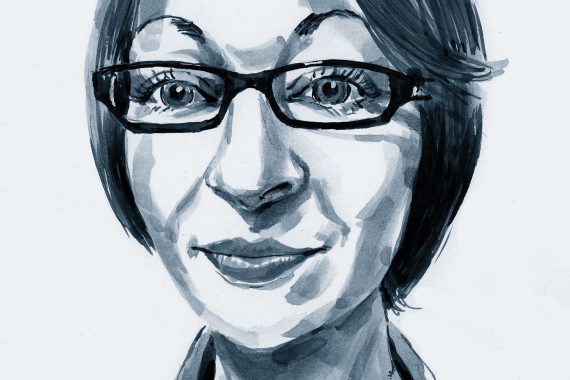Remember you were the future – once

‘Trainees nowadays don’t know anything. They just learn how to pass exams, how to request lots of fancy tests.
‘They follow all the guidelines, no common sense; just not ready for the real world of general practice.’
Yeah you know the type who says this.
Whatever challenge you face, they had it harder. That patient with the weird presentation – they’ve seen it. The diagnosis you were so pleased to pick up – it was obvious.
They have a litany of what’s wrong with the profession, but can’t offer solutions. While lamenting the fact that hospital juniors don’t work 120-hour weeks any more, or that someone keeps letting all these damn women into medical school, they forget the first rule of being a GP: don’t criticise other groups of GPs.
The second rule of being a GP is DON’T CRITICISE OTHER GPS.
If this was a generational thing, maybe it would be easier to get my head around. But it isn’t. Some of the most vocal criticisms of trainees and newly qualified GPs come from their close peers.
If you think new GPs don’t have the skillset they should, then stop whinging and do something about it. Telling them they are rubbish before they have even started is probably higher on the list of sins than telling them things are all roses and kittens in general practice at the moment.
Write to the college – it sets the curriculum. Give specific examples, not general complaints. Offer to teach at your local VTS, and cover the ‘real-world’ topics you think are lacking. A few sessions on practice management from an experienced partner or practice manager can be invaluable.
If you are a trainer, look at the content that’s being delivered. A few VTS sessions at the end of ST3 covering all those bits that aren’t in the curriculum (but everyone needs to know) would be perfectly viable. Make sure there is long-term support; encourage trainees to stay in touch with you, their trainers and each other. Make sure that trainees are aware of their LMC and who represents them.
Or here’s a novel idea, why don’t we ask the trainees what they would like to know? Ask them and the First5 cohort, what was missing and how we – their colleagues – can help. Often it’s the simple things that seem the hardest.
Where do they get the right locum A & B forms from? What do they do if they’re having problems? How do they join the out-of-hours service?
Whatever support they need, the rest of the profession can provide it. We just have to listen, and maybe set aside our own preconceptions for a while. What is right for me isn’t necessarily right for you. What general practice looked like 20 years ago is not what it looks like now.
It may not be a popular view, but the profession is changing. Let’s support our trainees in creating the general practice they want to work in and stay in. Remember, we may need someone to prescribe our donepezil sooner than we think.
Dr Zoe Norris is a GP in Hull
Pulse October survey
Take our July 2025 survey to potentially win £1.000 worth of tokens










